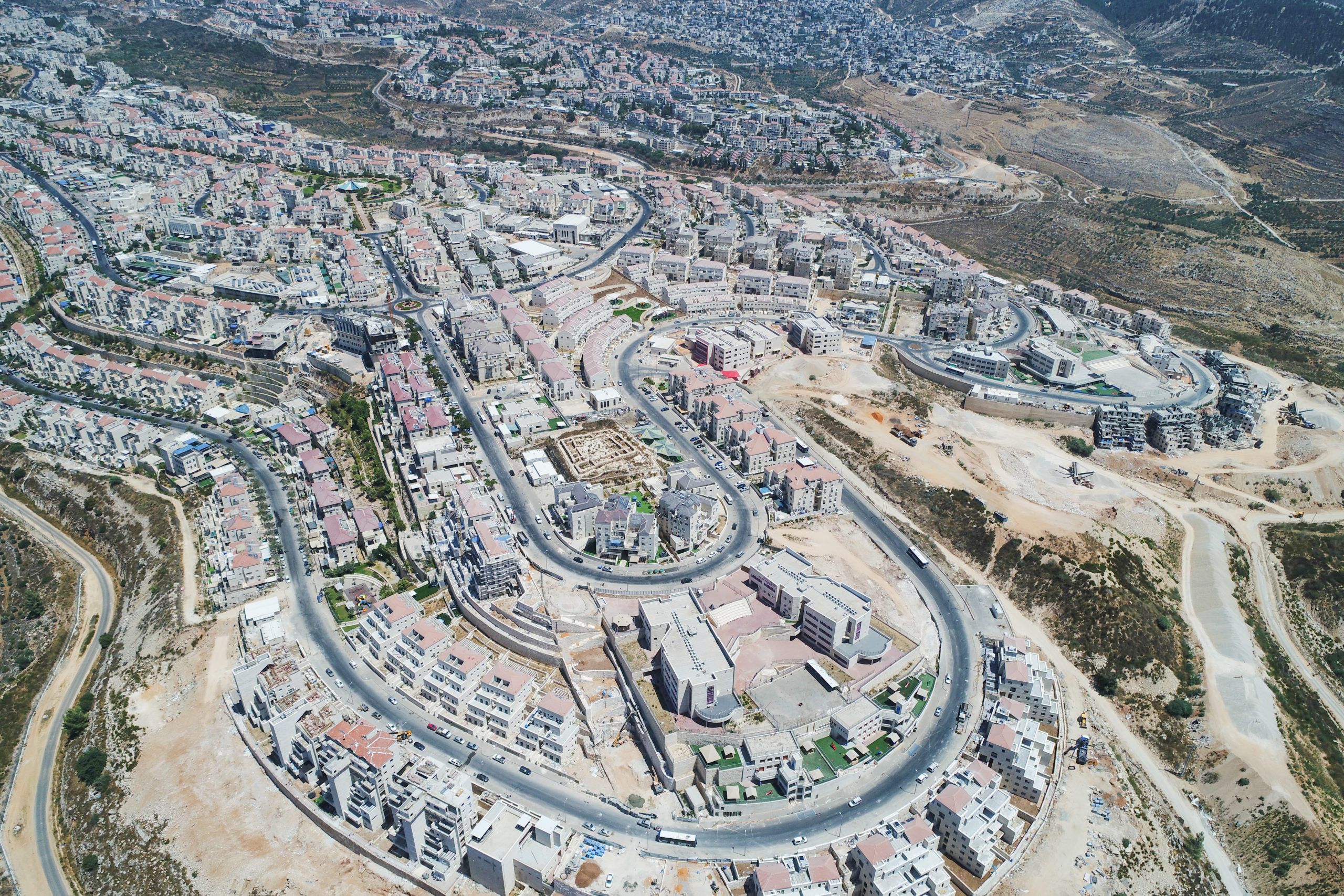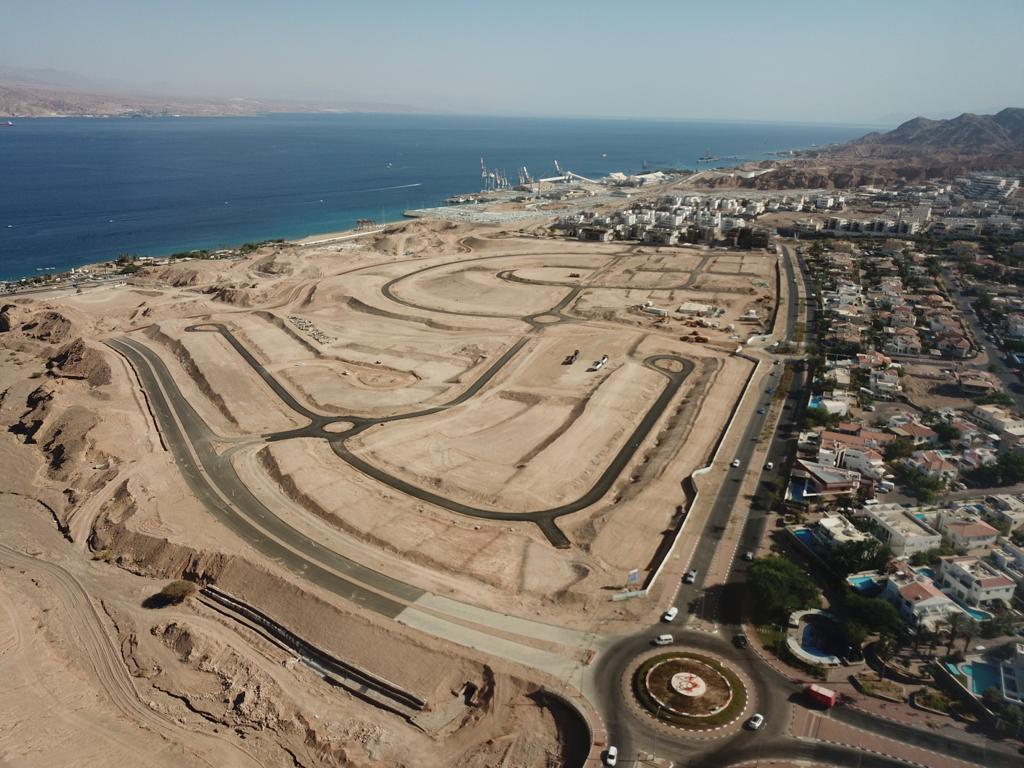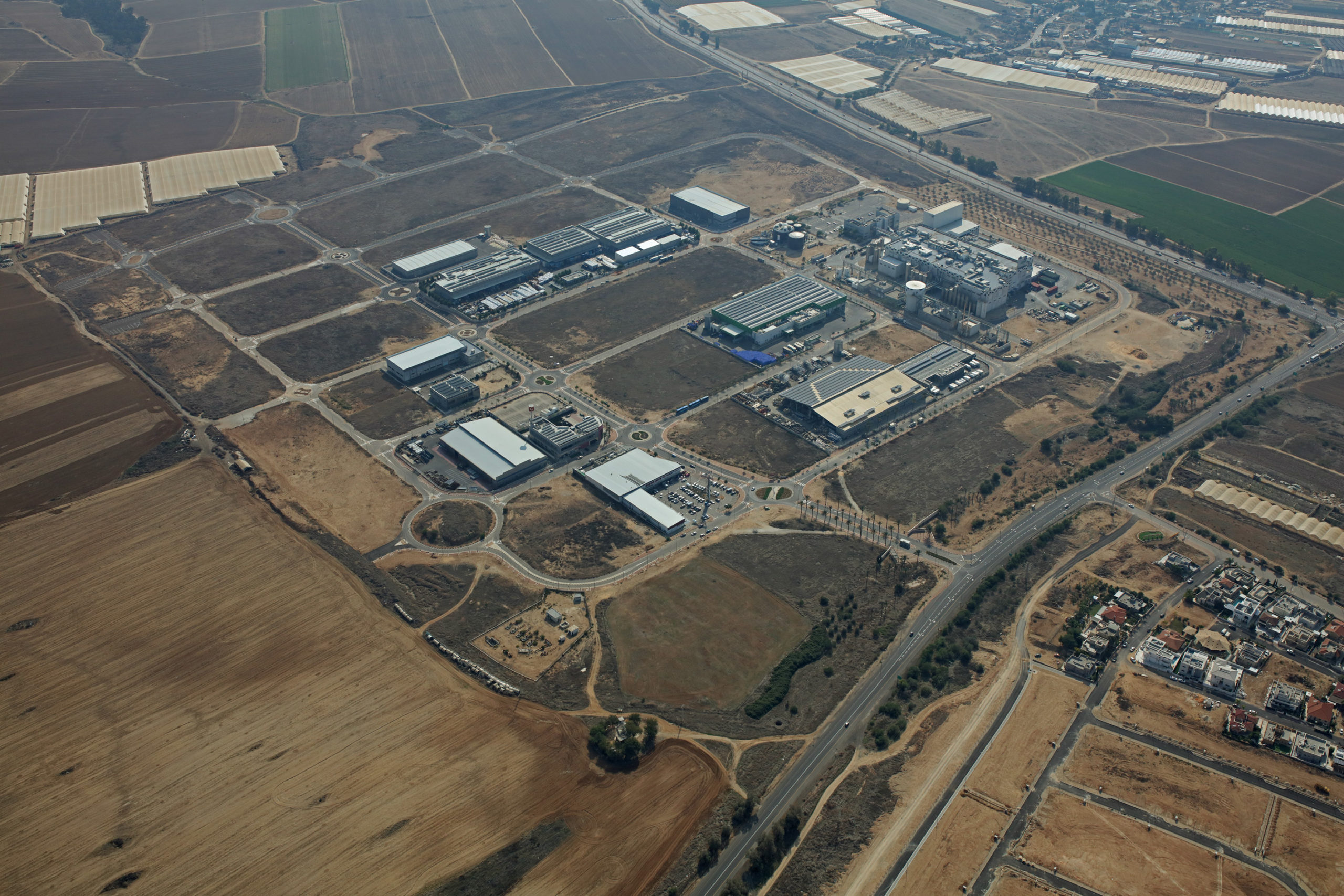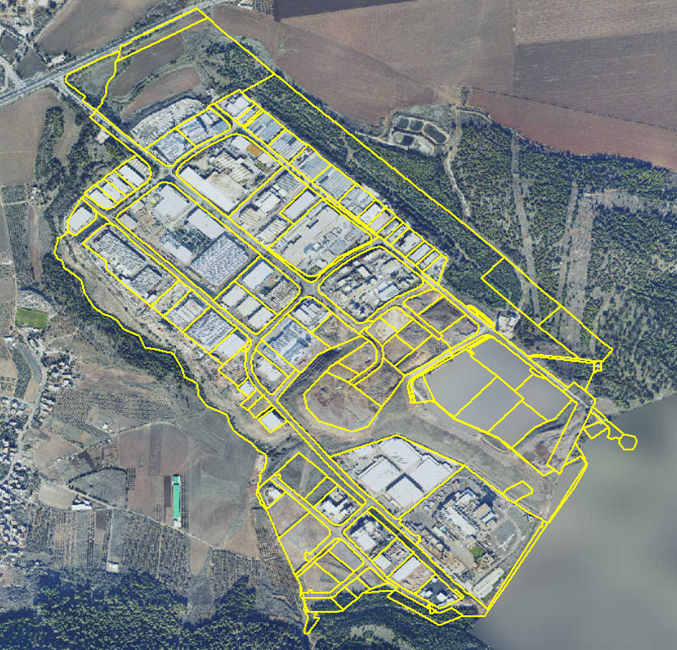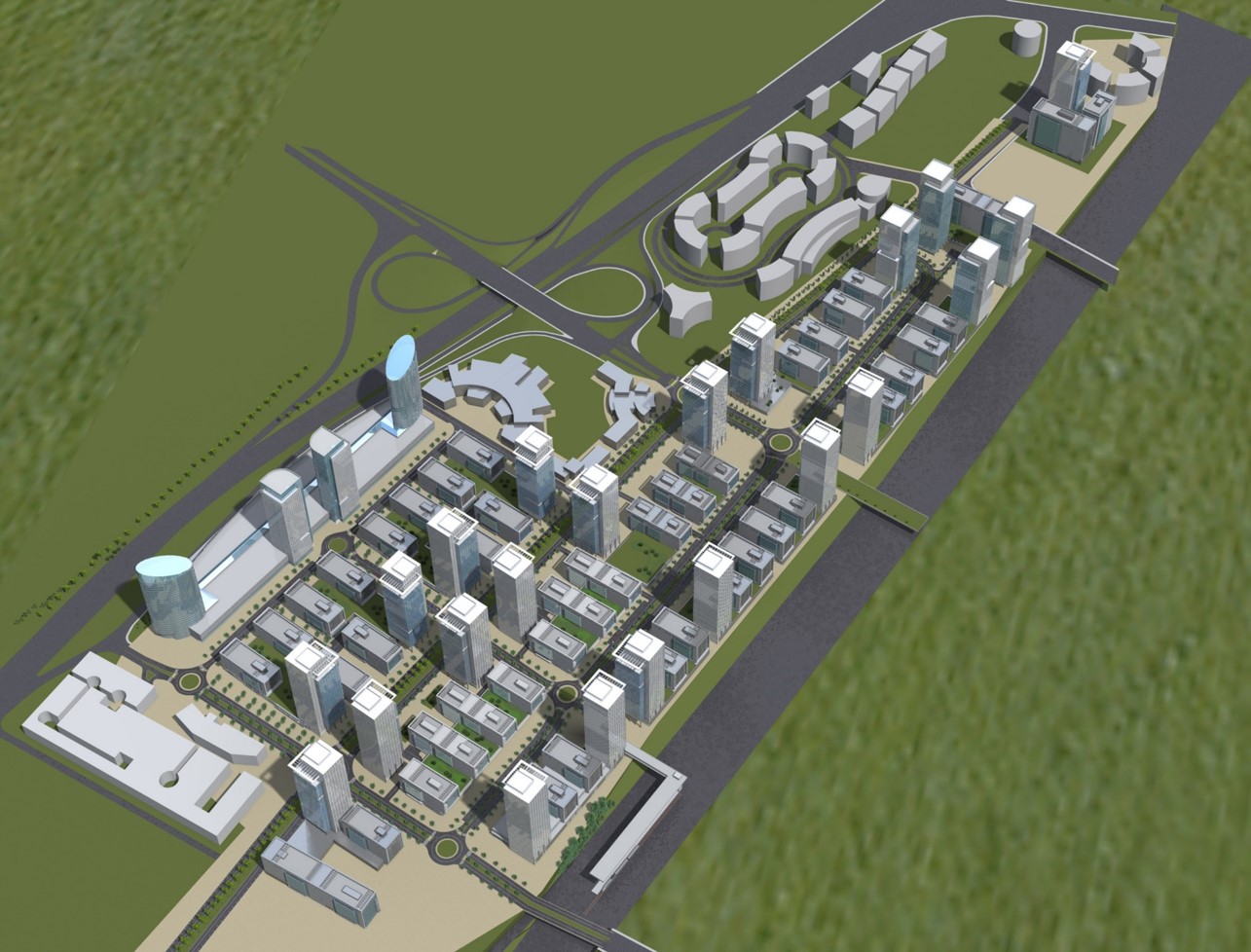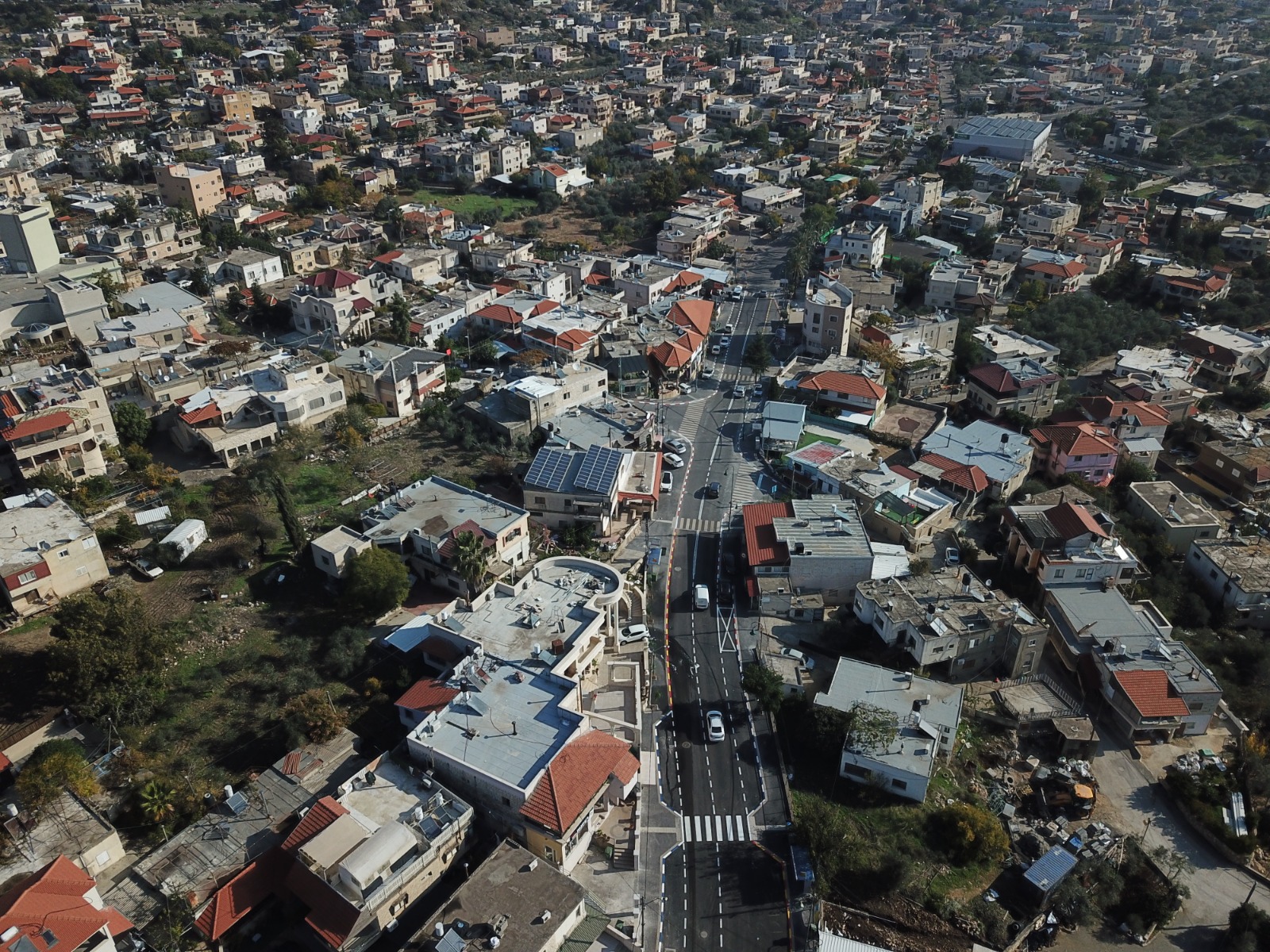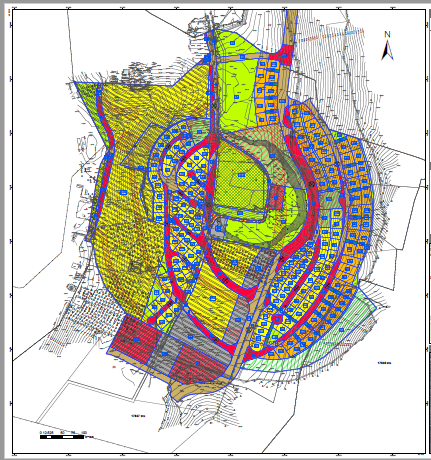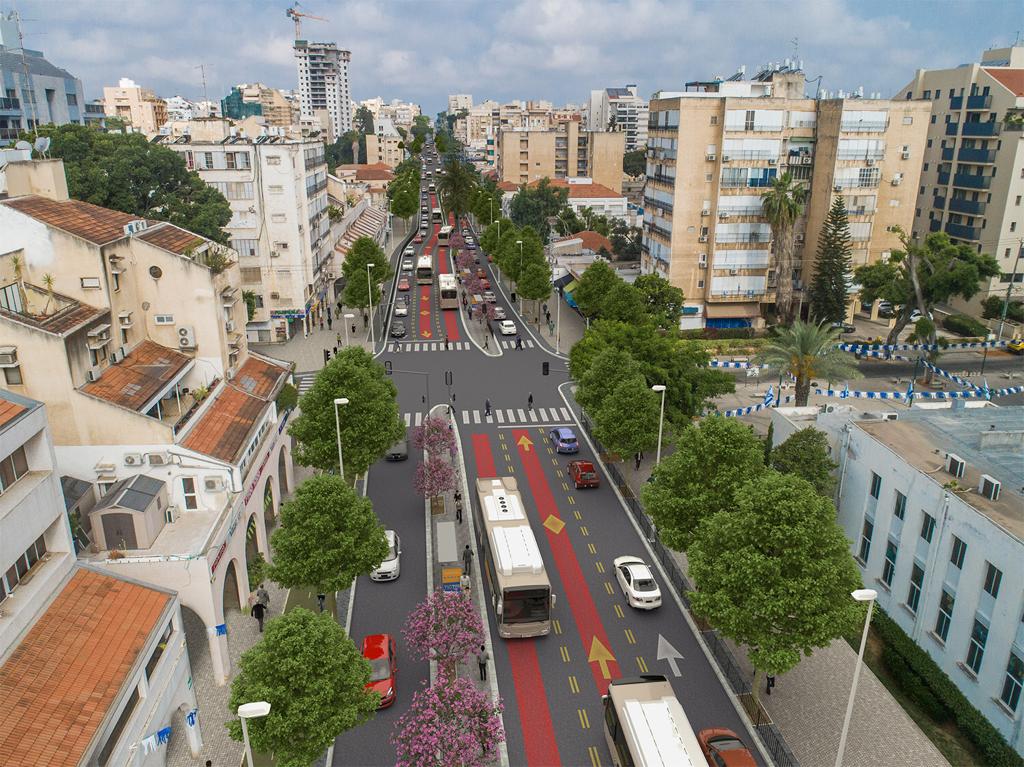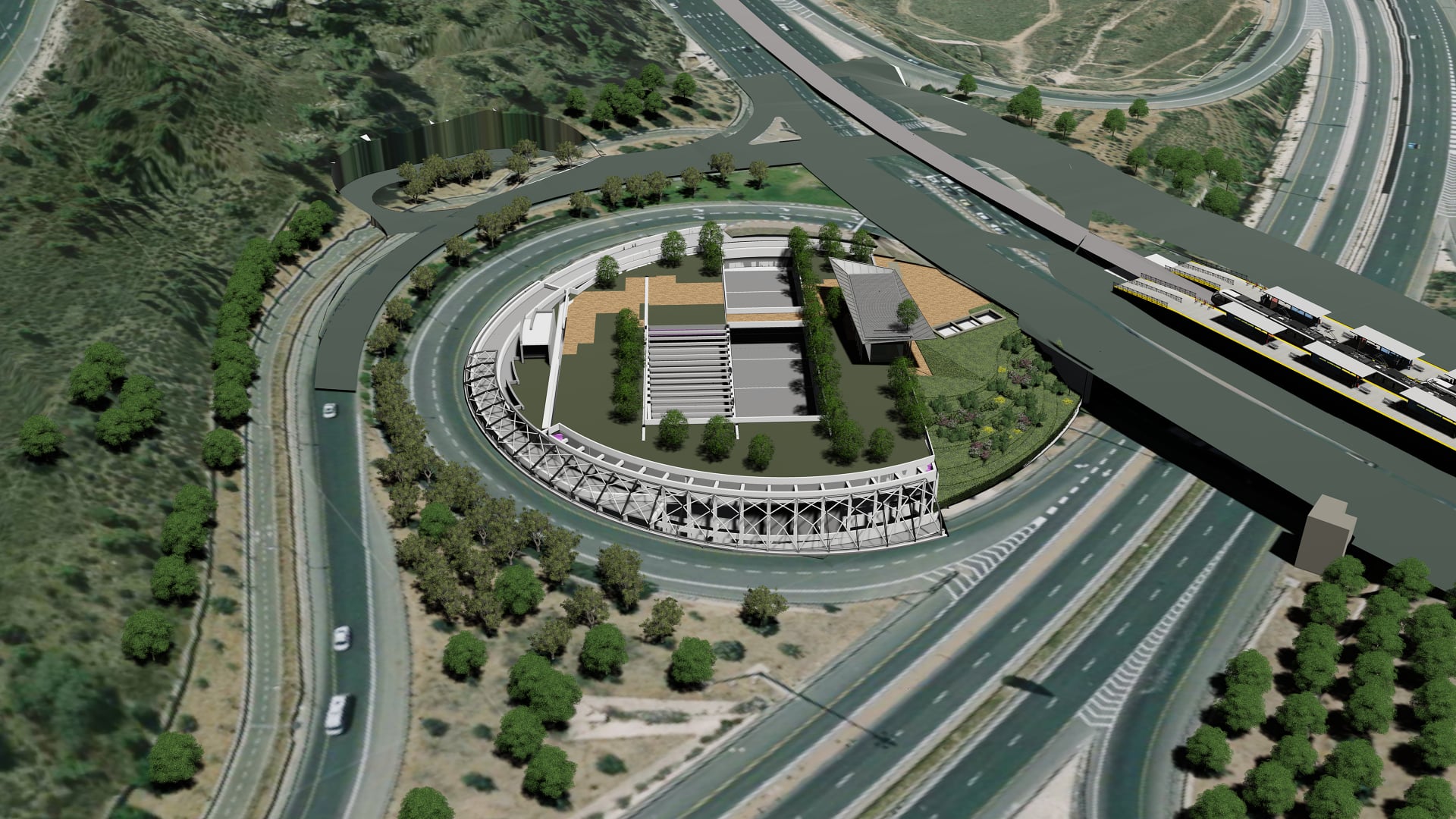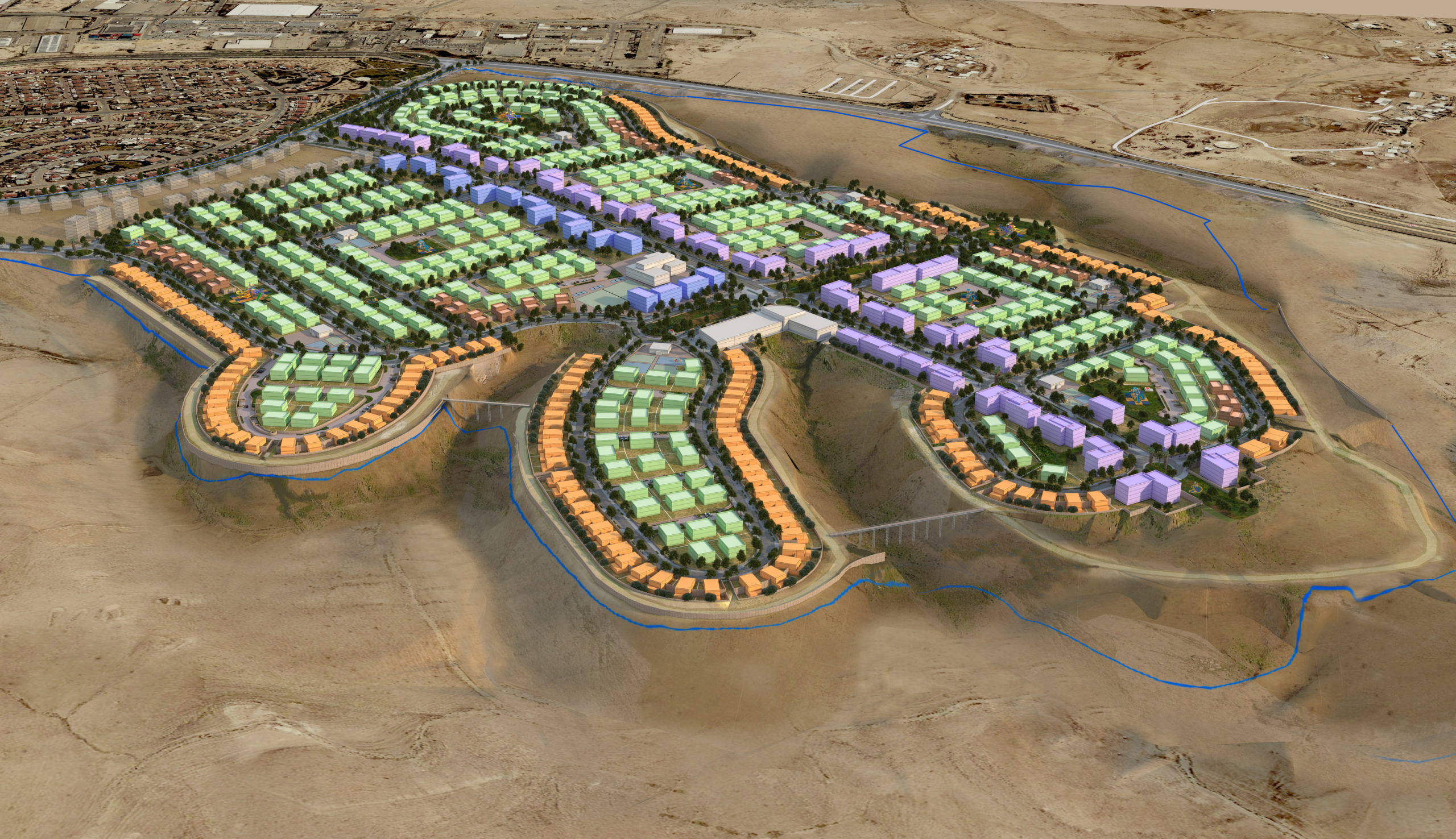Gadish was chosen to participate in the expansion of the settlements of Beitar Illit and Efrat – about 8,333 housing units in high-density construction and self-build. The works include: underground works, drainage, road grading and sloping, retaining wall (geogrid soil reinforcement, gravity, reinforced walls), developing open public spaces in difficult mountainous topography (slopes of 40 degrees), hard rocky soil, working with external infrastructures and utility providers: IEC, The Antiquities Authority, Mekorot, Hot, Cellcom, Bezek and more
Archives: Projects
Projects
Shahamon 2 Neighborhood – Eilat
Gadish was chosen to take an important role in the project for building a residential neighborhood in the area between Nahal Shahamon in the north and Quarter 6 in the south, on the eastern area of Eilat’s southern beach strip. Quarter 2 is part of the Shahamon neighborhood, where 460 apartments are planned.
Construction in the neighborhood was planned while taking its special topography into account, with two deep valleys that cut into its area with three extensions between them.
The valleys area would become a park that would slope towards the beach (Dekel Beach and HaHashmal Beach). The works include earthworks, subterranean infrastructures, roads, open public spaces and final development for population.
N.A.M. Industrial Zone
Gadish was chosen to be the managing company on behalf of the Ministry of Economics to develop this industrial zone, including managing the zoning plans proceedings, detailed planning management and execution management, including road sub-grading, subterranean infrastructure, development, landscape and irrigation, and building a sewage pumping station.
The Alon Tavor Industrial Zone
Gadish was chosen to be the managing company on behalf of the Ministry of Economics to develop about 50 industrial zones in northern Israel, including the planning management for zoning plans, detailed planning execution and execution management.
Main Operations in the Alon Tavor Industrial Zone:
Completing the stabilization of the slope of Carmel Wineries, completing the landscape development in the existing/populated area, pre-development works in Expansion A, zoning planning for Expansion B, zoning planning: pretreatment reservoirs, sewage pumping station, open public spaces and a water pool).
North Glilot Employment Center
Gadish received an important role in the project of the North Glilot Employment Center project which would cover an area of more than 700 dunams and is planned for knowledge-intensive and commerce office buildings. The project is located north of Herzliya’s Cinema City between Road 2 to the west and the Ayalon Highway to the east.
The project includes about 2.0 kilometers of internal two-lane roads, several roundabouts, “wet” infrastructures of drainage, water and sewage, streetlights and landscape development including bike lanes, an irrigation system and gardening.
Developing Transportation Projects in Minority Settlements
Gadish served as the “management company” since 2000 and since 2009 until today it has been serving as a “supervising company” on behalf of the Ministry of Transportation, for a variety of transportation projects, in minority settlements across Israel. Its role includes managing or supervising public infrastructure works, building and paving road segments, junctions, roundabouts, lighting, installing safety accessories, retaining walls, drainage works and more.
Bir al-Maksur
Gadish was chosen to serve as an administration on behalf of the ILA in the construction of a 720-apartment neighborhood and a light industry and workshops complex. The area of this plan is about 582 dunams. The plan includes two-family and three-family houses, and apartments in residential buildings. The plan is located at the eastern side of the town of Bir al-Maksur near its border.
Mahir La’Ir (“Fast to the City”)
Gadish was chosen to manage the planning and execution for Ayalon Highways in the “Mahir La’Ir” project in several cities – Kfar Saba, Ra’anana, Hod HaSharon. The “Mahir La’ir” project revolves around the construction of public transit lanes in city centers, with the aim of leading to a preference of public transit over private vehicles
The engineering works included the construction of retaining walls, creating drainage systems, culverts, concrete draining channels, new lighting systems, full-depth asphalt structure, pavements, landscape development, pedestrian and bicycle bridges, relocating communication infrastructures across the entire project and undergrounding the power grid
Parking lot – park and drive 4/9-Har Homa
The project includes the construction of a park and ride parking lot for the benefit of the users of the blue line of the light rail in Jerusalem. 960 parking spaces In addition, the works include the construction of an underground passage for vehicles and pedestrians
Continue reading “Parking lot – park and drive 4/9-Har Homa”
Quarter 12 in the City of Arad
Gadish was chosen to be the managing company for developing Quarter 12 of the city of Arad. Building a residential neighborhood which includes 1,250 housing units on a self-build basis and the construction of commerce and public buildings.
